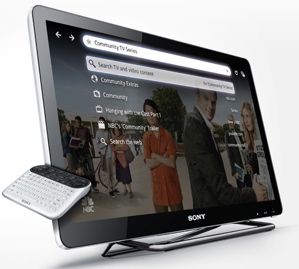
Sony launches Google TV-equipped HDTVs, Blu-ray player, crazy remote control
Consumer electronics company Sony on Tuesday evening introduced its first Google TV-powered line of products it's calling Sony Internet TV. The line includes four LCD televisions and a connected Blu-ray player which Sony put up for pre-order today.
The Sony Internet TV line of LCD TVs includes a 24-inch model for $599 (NSX-24GT1,) a 32-inch model for $799 (NSX-32GT1,) a 40-inch model for $999 (NSX-40GT1,) and a 46-inch model for $1399 (NSX-46GT1.) All models carry just about the same specs, with the exception of the backlighting. All include edge-LED backlighting except the cheapest model, which uses CCFL. Otherwise, they're all equipped with an Intel processor, built-in Wi-Fi, four HDMI ports and four USB ports, support for Android apps, and the ability to watch TV and run apps at the same time with "dual view" mode.

Georgia Tech researchers give robots ability to think amongst themselves
This week, at Robotics Rodeo 2010 at Fort Benning, Georgia, researchers from the Georgia Tech Research Institute (GTRI) will be showing off a system they have developed to let airborne and ground-based robots communicate and interact with one another without the need for a human intermediary.
The system is called CUSTD, which stands for Collaborative Unmanned Systems Technology Demonstrator, and it teams two model aircraft with nine-foot wingspans, with an unmanned Porsche Cayenne SUV. Utilizing a complex system of sensors, cameras, and computers, the two aircraft can, for example, search for a target and mark its position with GPS coordinates which are sent back to the unmanned car, which can then navigate to the target using the shortest accessible route.
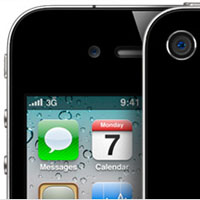
iPhone game developer Ngcomo acquired in $400 million transaction
In what could be the biggest acquisition yet in the mobile gaming space, Japanese mobile Internet conglomerate DeNA said Tuesday it will acquire San Francisco-based mobile developer Ngcomo in a transaction valued at some $400 million USD.
DeNA will initially pay $300 million in cash and securities, however Ngcomo's shareholders could receive up to $100 million additionally if the company reaches certain "performance milestones" through the end of next year. The company is one of Apple's most successful developers with over 60 million downloads.
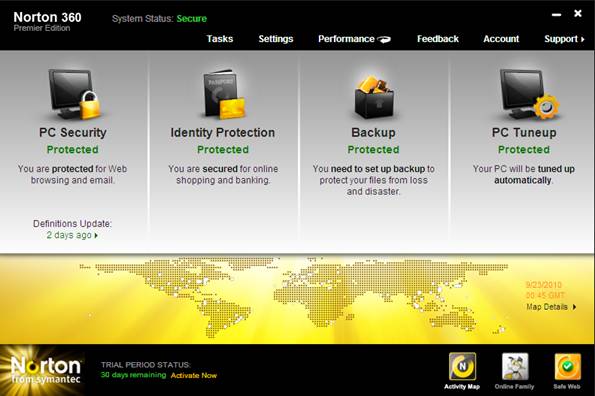
Symantec launches beta of Norton 360 5.0
Symantec today opened the public beta of Norton 360 5.0, the latest version of the company's end-to-end security suite. This beta builds upon the updated versions of Norton Internet Security and Norton Antivirus released in September, and improves the usability and performance in the backup and tune-up features exclusive to Norton 360, redesigns the UI, revamps the online backup user experience, and integrates with Norton's free online tools.
New Features

Would you be Steve Ballmer's Facebook Friend?
That's the question I started asking last night. But there is another. Would Microsoft's CEO accept me as friend? Or you?
Yesterday, Nick Eaton of Seattle PI's "The Microsoft Blog" pointed to what he believed to be "Steve Ballmer's real Facebook page." Welcome to Facebook, Steve, assuming that's really you. I've been on the service since 2006. Could I offer you some tips?

Amazon's new 'Kindle Single' format: lowering the bar for literature?
Amazon on Tuesday announced it will be trying a new format for the Kindle e-reader which it is calling the "Kindle Single."
Longer than a magazine article, and shorter than a full novel, Amazon says the Kindle Single could be the "perfect, natural length to lay out a single killer idea...well researched, well argued and well illustrated."
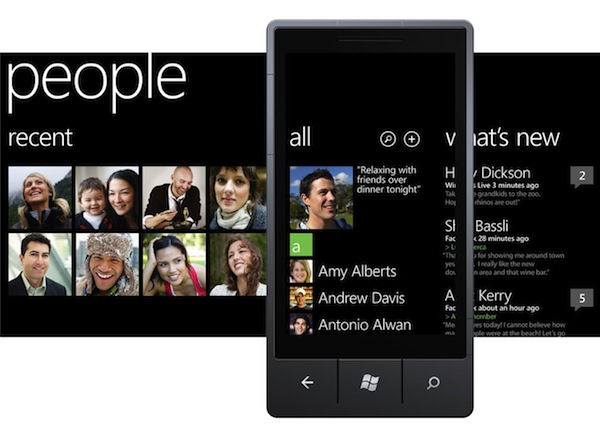
Really? New Windows Phone 7 commercials rock
For months I've been saying that marketing, more than technology, would define (or fail to) Windows Phone 7's launch. If Microsoft could only get the messaging right. Earlier today, I posted about how important it is for Microsoft to make phones running its mobile operating system be highly personal. I actually wrote the 1,400-word missive last night, not knowing Microsoft would make personal such a priority; I simply added quotes from today's Windows Phone 7 launch event to make the analysis current. From putting the "P" in personal to smart messaging to simply brilliant advertising, Microsoft has pulled back the curtains on Windows Phone 7 in oh-so right fashion.
Last month, I explained what Microsoft needed to do today: "There must be aggressive aspirational marketing that is at least as good as recent Bing, Internet Explorer and Windows 7 advertising...Microsoft made the right, positive impressions when rebranding Windows Live Search to Bing -- thanks to supporting marketing. Windows Mobile is dead. Long live Windows Phone. It's a new brand that buyers must rightly meet."
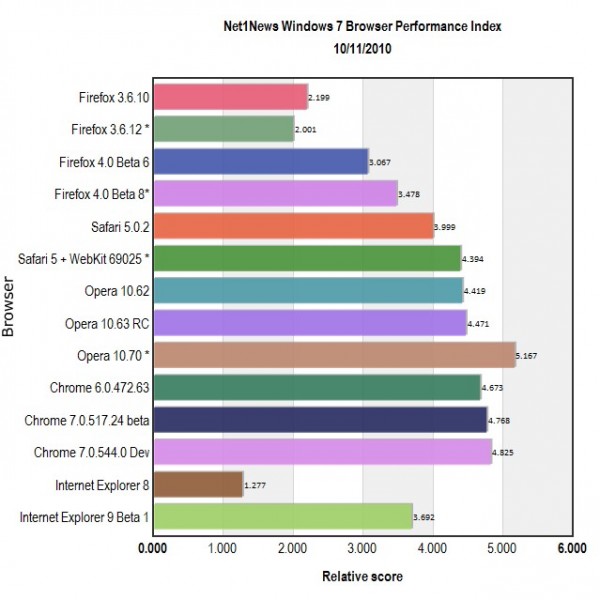
Firefox in the dust: Opera poised to reclaim browser performance lead
Exactly what is it that convinces a Windows 7 user to drop the Web browser that came with her operating system - Internet Explorer - and try one of its many free competitors? The very name "Firefox" implies both speed and savvy, two factors its predecessor - Netscape Navigator - did not always possess. "Faster" and "better looking" are the two factors that make folks trade up for a sports car, though with a Web browser, "free" is a nice incentive you don't find in the automotive market.
Last month, Microsoft demonstrated that it is indeed capable of robbing Firefox of all its persuasion points, with a public beta of IE9 that is faster and smoother than anything Mozilla has ever produced. If IE9 is already fast, simple enough to use, and even good looking, the incentive for consumers to try not just Firefox but any other alternative, could evaporate.

Sony launches Vegas Pro 10 video editing software, supports 3D, OFX plug-ins
The latest version of Sony's desktop video editing and production software, Vegas Pro 10, launched in retail on Monday, the company announced.
Sony's Vegas Pro is a full-featured video production suite comparable to Avid Composer, Adobe Premiere, and Apple's Final Cut. While it may not have quite the level of prestige among professionals that its competitors have, Vegas retains a strong presence among the consumer/prosumer segment thanks to the widespread retail availability of the lower-tier Vegas Studio software.

Microsoft unveils 10 new Windows 7 Phones, sets 1GHz as the baseline
Monday morning, Microsoft revealed the first handful of Windows Phone 7 devices. These nine new handsets will be available in North America on November 8th, and in Europe, and Asia on October 21. As a bit of a bonus, HTC announced an additional WP7 phone which will arrive a little bit after the first batch, some time early next year.
Microsoft has set a pretty high bar in terms of a baseline device specs. They are all on par with the top-of-the-line devices on Google's Android platform, offering 1GHz Qualcomm Snapdragon processors, five megapixel cameras, and each with a price around $200 US.

How should Microsoft open the curtains on Windows Phone 7?
Microsoft's launch of Windows Phone 7 is a turning point for the company. Either Microsoft will turn back to its enterprise applications stack past or turn a page that opens a new chapter for future expansion. Should Microsoft fail to deftly execute, its computing and informational relevance will likely decline, much like IBM in the 1980s and 1990s. Windows Phone 7 is Microsoft's IBM PC moment, but the course doesn't have to be the same as Big Blue three decades ago. Much depends on Microsoft marketing and how much the company embraces the cloud connected mobile device applications stack rather than clings to the Office-Windows-Windows Server app stack.
Microsoft CEO Steve Ballmer officiated today's Windows Phone 7 launch in New York. The locale was meant to reassure Wall Street that Microsoft has a viable and even winning mobile strategy. Ballmer asserted that Microsoft "built a different kind of phone." He said that Windows Phone 7 isn't so much about what users are going to do with the phone but how they're going to do it. Windows Phone 7 will be available on "nine different phones" when WP7 "ships here in the United States in November." Official device availability is November 8th. Windows Phone 7 handsets will be available from operators in 30 countries, making the phones "wonderfully mine," Ballmer asserted. Microsoft's marketing position: Windows Phone 7 is a "fresh start for the smartphone." But is it a fresh start for Microsoft mobile? Ballmer obviously took the position of yes.

Ford releases SDK to pair smartphone apps with SYNC voice command
American automobile company Ford today announced it is now releasing its software development kit to developers looking to make their smartphone apps compatible with Ford SYNC's voice command system.
SYNC debuted in the 2008 Ford Focus, and after it proved to be much more than a sales gimmick, discussion that cars could be the next big platform for apps began to arise.
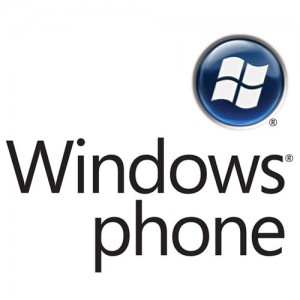
You WILL NOT buy Windows Phone 7
Who will line up to get a new Microsoft-powered handset when Windows Phone 7 officially launches on Monday? Betanews readers answered the who will in my previous post. They responded to an earlier question: "Will you buy Windows Phone 7?" About 70 percent of the e-mail respondents will buy. The naysayers, while fewer in number, give some very good reasons why not Windows Phone 7.
I expected more of a fifty-fifty split between the respondents, perhaps with even more Betanews readers saying no to Windows Phone 7. Well, hell, what do I know? To be clear, a few hundred readers, whether responding by e-mail or in comments, is no measure of WP7's sales potential. But both groups' reasons for buying or not are meaningful,
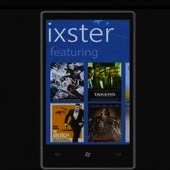
You WILL buy Windows Phone 7
Perhaps Windows Phone 7 won't come dead on arrival after all. Maybe the analysts and naysaying pundits don't give Microsoft the respect it deserves. Maybe there is enormous pent up demand for Windows Phone 7. Maybe the silent majority that loves Microsoft products has waited for this day -- ah Monday, when Windows Phone 7 officially launches.
Three days ago, I asked: "Will you buy Windows Phone 7?" The response was immediate and overwhelming: More than 150 comments to the post and more than 3 times the usual number of e-mail responses I normally get to buying questions. Among the e-mail respondents, the majority plan to buy a Windows Phone 7 device. Even among those saying nay, many expressed interest if circumstances were different, such as Microsoft getting the product to market faster (they couldn't wait and already got something else) or limited carrier availability (in the United States, no Verizon. Yet.). Most of the e-mail respondents who chose something else bought or will buy an Android handset -- that's a painful dig for Microsoft, because Android more directly competes with potential Windows Phone 7 developers and smartphone buyers than iPhone.

BlackBerry dodges ban in United Arab Emirates
Just days before the October 11th deadline, the United Arab Emirates' Telecommunications Regulatory Authority today announced that Research in Motion's BlackBerry services are now compliant with local law and will not be blocked.
Research in Motion's BlackBerry services have stirred controversy in a number of countries due to the fact that they communicate only with offshore servers and do not allow any backdoor surveillance. In addition to the United Arab Emirates, Saudi Arabia, Indonesia, Lebanon, and India have all asked for RIM to alter the BlackBerry messaging structure to conform with local laws. A common complaint is that illegal activity could be discussed and planned securely on BlackBerry and local authorities would have no access to such communications.